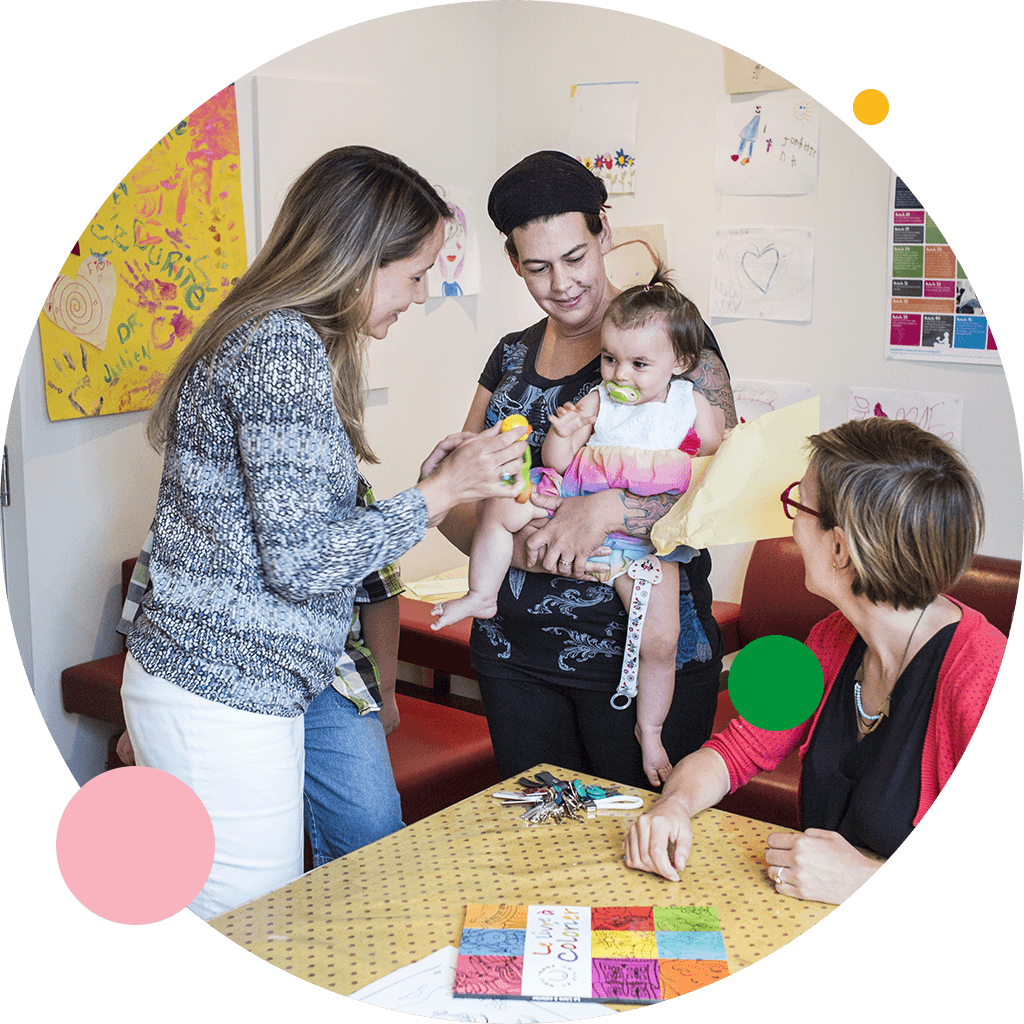A whole front-line team
Community social pediatrics is a holistic approach to health based on different disciplines working together, sharing information, expertise and research and implementing solutions, in close collaboration with the child and their family. Follow-up and support will continue throughout the child’s life, for their well-being and overall health. As such, professionals and specialists work in tandem to provide a range of integrated and personalized care and services. Their goal is for every child to develop to their extraordinary full potential.
